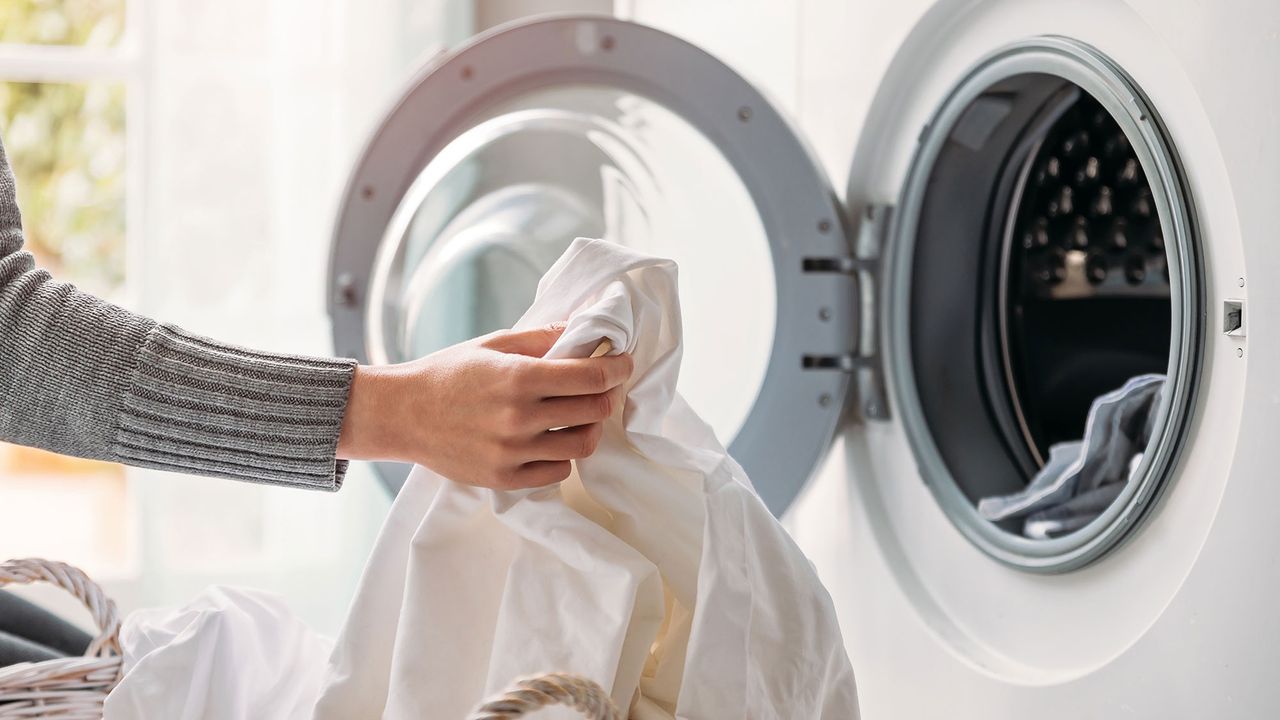Purchasing a washing machine involves more than just choosing a model; it requires a thorough understanding of your household’s specific needs. With years of experience handling various laundry challenges, a recent analysis highlights five key features to consider when selecting a washing machine that meets both performance and efficiency standards.
Front Load vs. Top Load: Space Considerations
When choosing between front-loading and top-loading washing machines, it’s crucial to consider space. In many regions, including the United Kingdom, front-load machines are more prevalent. They typically occupy less vertical space, making them ideal for kitchens and smaller laundry areas.
According to Lisa Klages, Product Manager at Danby Appliances, front-load machines are more efficient in water and energy usage, consuming between 20-60% less than traditional top-loaders. Additionally, front-loaders generally provide faster spin speeds, resulting in drier clothes after washing. This efficiency not only appeals to budget-conscious consumers but also contributes to environmental sustainability.
Capacity: A Key Factor for Families
Another important consideration is the washing machine’s capacity. Households with multiple members often struggle with laundry accumulation, particularly when it comes to larger items like duvets. Choosing a machine with adequate capacity can alleviate the burden of frequent washes.
For families of four, Klages recommends a machine with a capacity between 4.5 and 5.2 cubic feet. Smaller households may find a capacity of 3.5 to 4.5 cubic feet sufficient. For larger families, opting for a machine with a capacity of 5.5 cubic feet or more can save time and energy, as undersized machines lead to more frequent use, increased water, and electrical costs.
Energy Efficiency: Long-Term Savings
Cost is a significant factor in appliance selection, particularly regarding energy and water consumption. The long-term operational costs associated with running a washing machine can add up, making energy efficiency a crucial criterion.
According to Lindsay Zollman, Senior Consumer Analyst at Hisense, selecting an energy-efficient washer not only reduces household expenses but also lessens environmental impact. Machines that carry the Energy Star label are recognized for superior energy efficiency, which can lead to substantial savings over time, especially for those who wash multiple loads each week.
Customizable Wash Cycles: Tailoring to Your Needs
While some consumers prefer straightforward machines without excessive options, having customizable wash cycles can significantly enhance the laundry experience. Specific cycles for delicate fabrics, wool, and activewear can be invaluable, particularly for households with allergies.
Zollman suggests considering washers with pet care cycles, which utilize gentler agitation patterns to prevent pet hair from embedding in fabrics. Furthermore, customizable settings enable users to adjust wash parameters based on material and load size, improving efficiency and satisfaction.
The Rise of Smart Washing Machines
As technology advances, smart washing machines are becoming increasingly popular. Although not all models currently offer smart features, many consumers look forward to their potential benefits. These machines enable users to start and stop cycles remotely via an app, receive maintenance alerts, and even adjust wash settings based on load weight and soil level.
A recent report highlighted the innovative capabilities of Samsung’s AI washing machine, which automates many laundry tasks. Such advancements indicate a shift towards appliances that not only simplify household chores but also enhance energy efficiency.
In summary, selecting the right washing machine involves careful consideration of features such as type, capacity, energy efficiency, cycle customization, and smart technology. By prioritizing these aspects, consumers can ensure they invest in a machine that meets their family’s needs and contributes to a more sustainable future.








































































